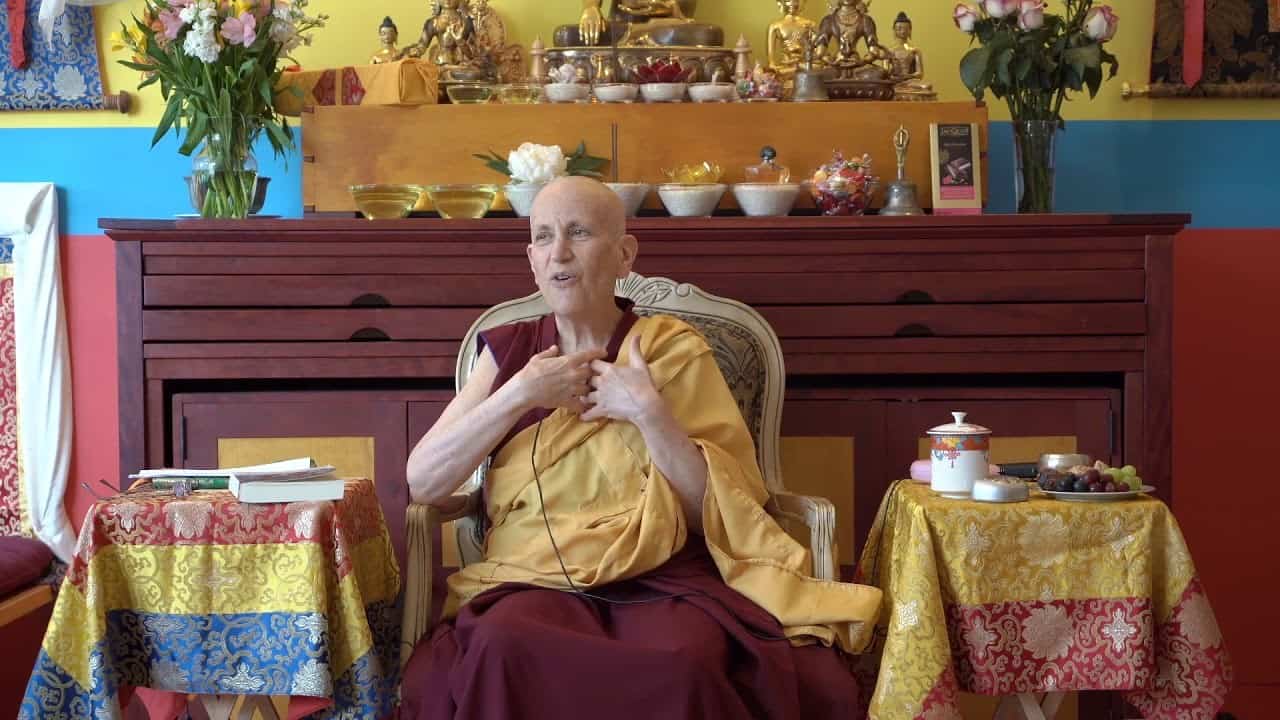Cultivating love and compassion, a review
Part of an ongoing series of teachings based on Approaching the Buddhist Path, the first book in “The Library of Wisdom and Compassion” series by His Holiness the Dalai Lama and Venerable Thubten Chodron.
- Various definitions of compassion
- Findings from research about the effects of compassion
- Benefits of developing compassion
- Three types of dukkha
- Interactive discussion on habitual response to experiencing dukkha versus responding with compassion
- Compassion, what it is and what it is not
56 Approaching the Buddhist Path: Review of Cultivating Love and Compassion (download)
Venerable Tenzin Tsepal
Venerable Tenzin Tsepal was first introduced to meditation in high school in the 1970s. While working as a dental hygienist in Seattle and hospital administration in Yakima, she practiced and attended retreats in the Vipassana tradition. In 1995, she found Dharma Friendship Foundation and teachings with Venerable Thubten Chodron. She attended the Life As A Western Buddhist Nun conference in India as a lay volunteer in 1996. Following a life-changing 3-month Vajrasattva retreat in 1998, Ven. Tsepal lived in Dharmsala, India for two years where she further explored the idea of monastic life. She received novice ordination as a Buddhist nun with His Holiness the Dalai Lama in March of 2001. After ordination, she was immersed in the full-time residential Buddhist Studies Program at Chenrezig Institute in Queensland, Australia, principally with Khensur Rinpoche and Geshe Tashi Tsering. As a qualified FPMT teacher, Ven. Tsepal was appointed the Western Teacher at Chenrezig Institute from 2004 to 2014, teaching the Discovering Buddhism series, tutoring for the general program and leading retreats. In 2015, she tutored three subjects for the FPMT Basic Program. Venerable Tsepal arrived at Sravasti Abbey in mid-January for the 2016 Winter Retreat. She joined the community in September 2016, and received Shiksamana training that October.


